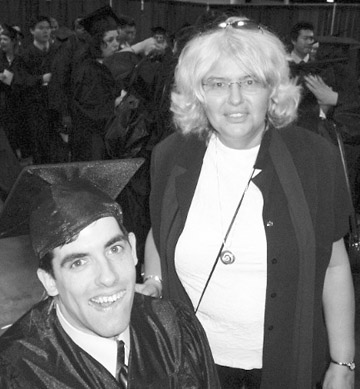Ten Years Later, Rwanda Defines our Generation
April 15, 2004
Ten years ago to the day, the United States washed its hands of the genocide in Rwanda and in doing so, delineated an American generation’s place in history.
Secretary of State Warren Christopher sent a cable on April 15, 1994 which said that the State Department “believes that there is insufficient justification to retain a UN peacekeeping presence in Rwanda and that the international community must give highest priority to full, orderly withdrawal of all UNAMIR personnel as soon as possible.”
He also instructed diplomats to tell the UN Security Council “that we will oppose any effort at this time to preserve a UMAMIR presence in Rwanda.”
The rest is history: Hutu militias within Rwanda, led by radio demagogues and armed by the police and the Rwandan military, murdered nearly a million Tutsis and moderate Hutus, in a genocide of such swiftness and lethality that it beggars the imagination.
Conservative estimates claim 800,000 dead in 100 days, from April 6, when Rwandan President Juvenal Habyarimana, on his way to implement the Arusha Accords and effectively end his country’s civil war, was shot down, to the end of July, when French troops marched into Rwanda. That’s 8,000 deaths per day.
Despite knowing exactly what was going on, and what was likely to happen, the Clinton administration, wary after the debacle in Somalia, pushed to pull out the troops already in Rwanda and hedged against going back in until the worst was over. This incredible hypocrisy, blind self-interest and fantastic disregard for moral suasion of any kind has, for good or ill, come to typify Americans at the end of the last century.
Rather than do the right thing by adding peacekeeping troops to the force already there (we could hardly have been interfering more), rather than preventing a campaign of slaughter unmatched in recent history, we decided that it was more correct, advantageous, ethical, and safe to pull out at the precise moment that aid was necessary, cementing the role of the UN and the U.S. as the folks that are there when you don’t want them and gone when you need a hand. No single act of foreign policy has done more to exemplify the stunning lack of moral reason in a people than this one.
In World War Two, Americans didn’t know too much about the Holocaust, the worst genocide the world has ever seen, until afterward, but they knew that they were fighting against Hitler because he seemed capable of it, and when they discovered what had been done, they were proud to say they had fought against that terrible thing. And now we call them the greatest generation.
After Vietnam, America was rolled up into the Cold War with the Soviet Union, and nothing seemed to matter to Americans but that mighty struggle between us and them, and so the slaughter of Cambodians by the Khmer Rouge, the second worst genocide the world has ever seen, was noted as regrettable, but ‘not our problem.’ And we call them the “Me Generation.”
And ten years ago, a decision was made for us to do nothing, say nothing in the face of reality. Even after UN general Romeo Dallaire had spent months pleading for help in Rwanda and warning the international community exactly what was going to happen, we did worse than stand by; we turned our backs, withdrew our helping hands, and did nothing but watch, numb and unfeeling. And that’s why they call us Generation X.























































